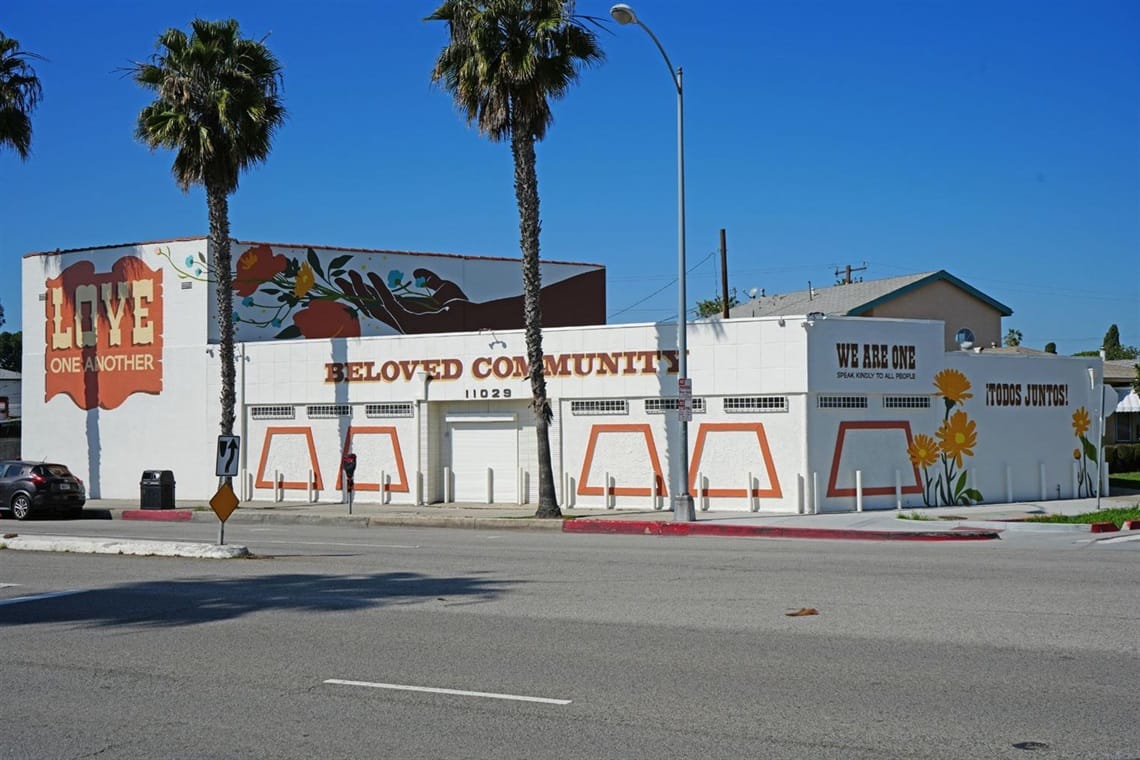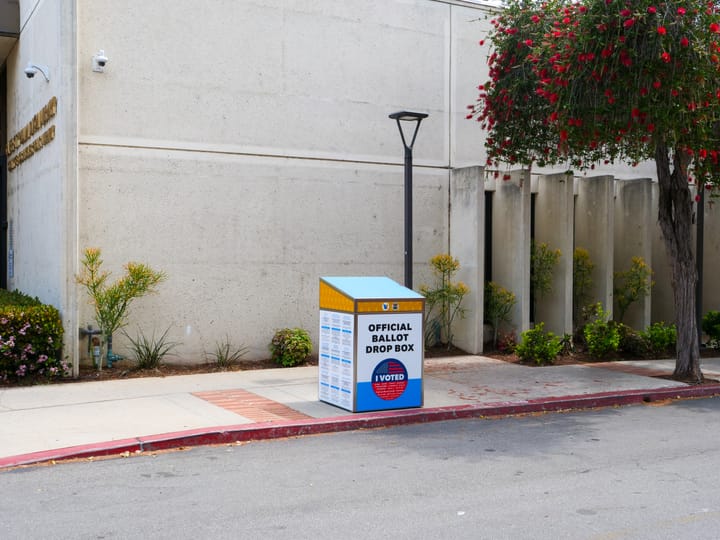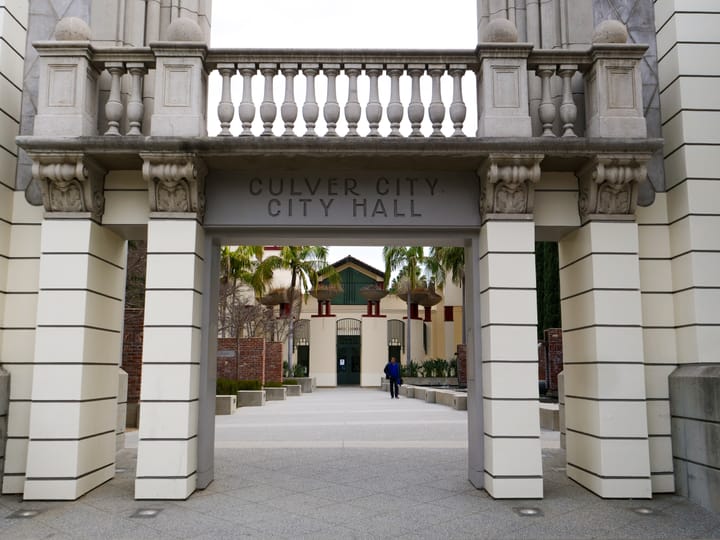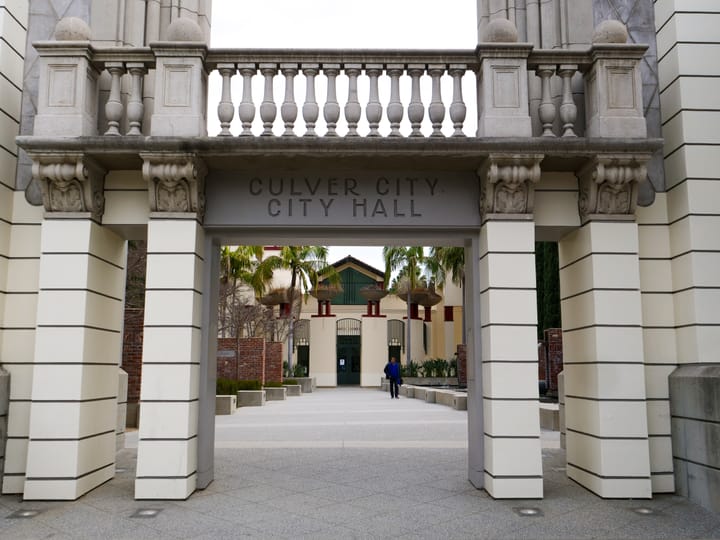Culver City to seek developers for Gun Store repurposing
Community feedback led the Culver City Council to call for an RFP for a project with housing, retail, and a community space at the former Retting Gun Store location.

Three distinct characteristics will be at the center of the discussion surrounding the Retting Gun Store property.
The Culver City City Council directed staff Monday night to create a Request For Proposal (RFP) to developers for a project at the former Retting Gun Store site at 11029 Washington Blvd. The site currently hosts a 0.2777-acre parcel containing a 4,660 square foot, one-story building with 20 parking spots on the corner of Washington Boulevard and Huron Avenue.
While council members have expressed a desire to be flexible with the space, three features will serve as the centerpiece: housing, income generation, and a community space.
This decision comes after outreach and scrutiny from the public. Culver City purchased the building in September 2023 for $6.5 million to ensure that guns would not be sold near Culver City children. Following the retirement of the previous owners, there was a chance that the property could be transferred and continue as a gun store, as it had been grandfathered in to compliance.
Council members and city staff prioritized ensuring that community feedback since the purchase would be gathered and considered. Then-Mayor Albert Vera made a statement ensuring that the public would be given ample opportunity to provide input on the direction this project would take.
"The City's decision to purchase the building is in large part from listening to the community and its desire to have a different use for that location," Vera said in a statement given to KTLA when the property was purchased. "It will be an involved process with the community on the next steps for that building and what it ultimately will become."
There was a call from community members concerned about the budget and unhappy about the potential increase to the city's sales tax to sell the building. It has not been appraised since the city purchased the property but is expected to be valued at $3 million to $5 million. While this revenue would be a short-term solution to the city's budget deficit in desperate need of relief, a sale of the property could net Culver City less than half of the $6,753,631.55 inflation-adjusted cost of the building.
Vice Mayor Freddy Puza said he was initially on board with selling the property and funneling 75% of the revenue into the Jubilo Village project, and the remaining 25% to projects related to city infrastructure like sidewalk repair and tree trimming.
However, he has since expressed interest in developing a mixed-use or retail property, citing the potential revenue as a factor that "piqued [his] interest."
Community input for the project was gathered in several ways, though none of them were considered surveys with a scientifically significant sample size. Three prevalent themes emerged from that feedback: the need for housing, the desire for a community space, and a duty to generate revenue.
Culver City's most recent Zoning Code update allows housing to be built just about anywhere in the city. Councilmember Bubba Fish noted that feedback gathered as part of the effort to place a sales tax ballot measure up for a special election, 74% of respondents indicated their belief that the lack of affordable housing was an "extremely serious" or "very serious" problem in Culver City.
Money is also an essential factor in discussions around this property, so a retail space will be included in the project for the city to lease to a retailer. Councilmember Vera noted that car sales generate significant revenue per square foot of space a business occupies, pointing out that Culver City Motor Cars is located directly adjacent to the property.
"Whether we sell the property or lease it out," Vera said during his comments. "We need to ensure that we have a constant source of revenue coming back into the city."
A desire for a community space was also apparent, with the public advocating for ideas ranging from a community garden to an art school to a "maker's space." Mayor Dan O'Brien suggested a potential density bonus based on the project's community benefit.
While these three core pieces of the project will be central to its design, council members are willing to show flexibility, including making zoning changes to alleviate the 35-dwelling-unit maximum allowed on the parcel to accommodate a project on the site. While language will be included in the RFP that indicates this willingness, no specific changes will be outlined.
O'Brien was pleased that there was a unanimous push to generate revenue on the property but emphasized the importance of ensuring the proposal is broad, based on advice from City Manager John Nachbar.
"[We should] keep [the RFP] as open as possible so we can hear all proposals and decide ourselves," O'Brien said, "but we can let the applicants know that we are focused on housing...retail, and community space."
While this was listed as an action item in the meeting agenda, no motion was required to provide the direction necessary to city staff.




Comments ()